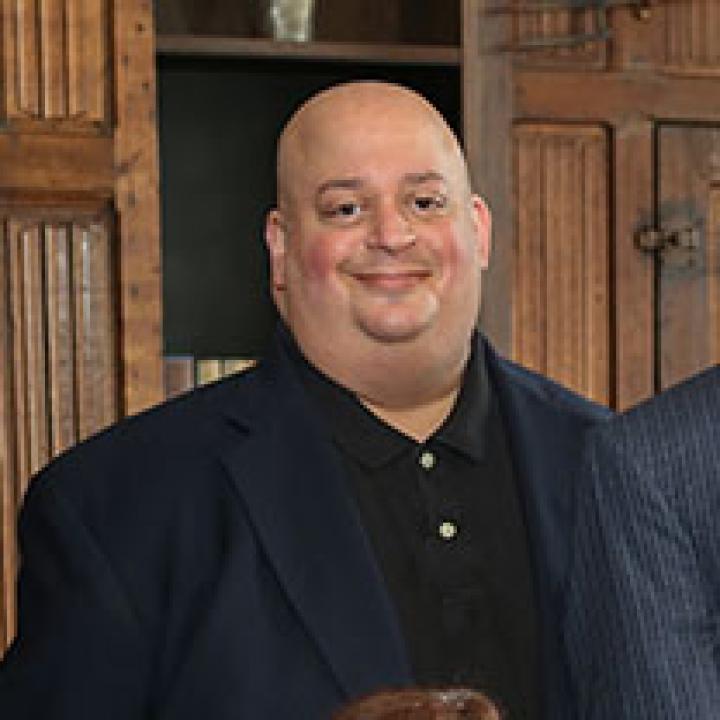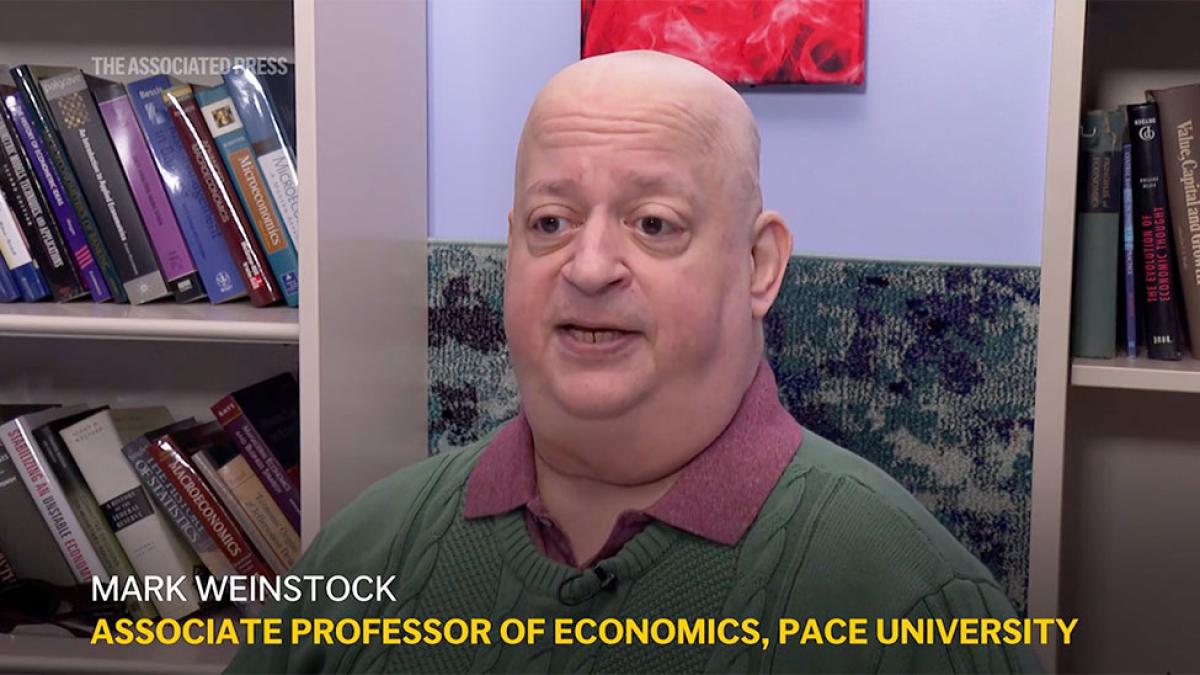In the New York Post, Economics Professor Mark Weinstock unpacks the market chaos following President Trump’s tariff reversal, pointing to economic uncertainty as the real driver of volatility.

Mark Weinstock
MS Program Director
Biography
Faculty Bio
Mark Weinstock completed his undergraduate and graduate studies in Economics at The City University of New York. His contribution to non-linear econometric modeling of bank regulation received the Leon Horniker Award for Research Excellence. It was also at Hunter College and City College that he began to develop an eclectic teaching style which combined experimental classroom technologies and projects with video, real world examples, and humor, along with more traditional methodologies.
Weinstock was an electronics entrepreneur for many years, allowing him to bring real world elements of finance and business into the classroom to create a bridge between the theoretical underpinnings of economics and real-world applications.
He began his career at Pace University in 2000 where he was instrumental in developing a fresh and exciting approach to teaching economics. The new curriculum and pedagogy, he helped implement has helped lead hundreds of students to exciting and rewarding careers and graduate degrees at top graduate programs throughout the world. He has brought dozens of Pace students each year to external research conferences including the prestigious Economics Scholars Program at the Dallas Federal Reserve Bank by serving as their research advisor. He is a member of the Society of Fellows at Pace University with a class inducted under his name in 2015.
Courses Taught
Past Courses
ECO 105: Principles of Economics: Macro
ECO 106: Microeconomics - LC
ECO 106: Principles of Economics: Micro
ECO 106: Prncpl of Eco: Microeco - LC
ECO 106: Prncpls of Ecnmcs: Mcroecnmcs
ECO 211: Sports Economics
ECO 230: Intermediate Macroeconomics
ECO 234: Intermediate Microeconomics
ECO 238: Money and Banking
ECO 240: Quant Analysis & Forecasting
ECO 240: Quantitative Anlys & Forcastng
ECO 296: Mathematical Economics II
ECO 296: Topic: Sports & Entrtnmnt Eco
ECO 296: Tpc: Eco Crime, War/Terrorism
ECO 296: U.S. Eco & Monetary Policy
ECO 305: Glbl Finance & Ecnmc Actvty
ECO 328: Central Banking
ECO 357: Managerial Economics
ECO 360: International Economics
ECO 365: U.S Economic & Monetary pol.
ECO 365: US Economy & Public Policy
ECO 375: China's Financial System:
ECO 376: From Wall St to the Great Wall
ECO 380: Mathematical Economics
ECO 381: Applied Game Theory
ECO 382: Applied Game Theory II
ECO 390: Internship In Economics
ECO 395: Independent Study in Economics
ECO 396: Applied Game Theory II
ECO 396: Mathematical Economics III
ECO 396: Topic: Central Banking
ECO 396: Topic: Faces of the Fed
ECO 399: Public Economic Policy
ECO 400: Seminar in Economic Theory
ECO 530: Macroeconomic Analysis
ECO 638: Monetary Policy Analysis
ECO 657: Applied Managerial Economics
ECO 680: Applied Game Theory
ECO 699: Mstr Thss or 3 Pblc Plcy Essys
ECOA 106: Microeconomics
HON 499: Snr Smnr in Rsrch Mthds
LAS 201: Latin America,Caribbean & Wrld
LAS 260: South American Colossus:
MBA 808: Creating Value Thru Finance
UNV 101: First-Year Smnr Unvrsty Cmmnty
UNV 101: First-Yr Smnr: Unvrsty Commnty
Related News and Stories
Economics Professor Mark Weinstock discusses the impact of tariffs on global markets and the broader economic implications with PIX11.
Economics Professor Mark Weinstock appears on News 12’s Power & Politics to break down recent tariff impacts and market turbulence.
